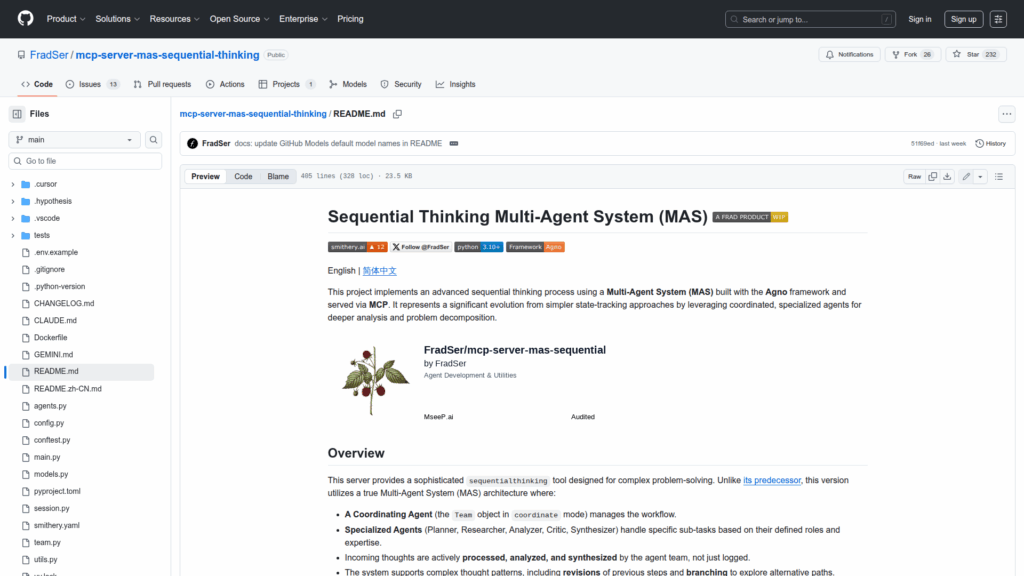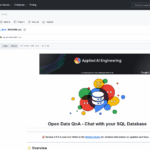mcp-server-mas-sequential-thinking
Basic Information
This repository provides a Python-based server that implements a Sequential Thinking Multi-Agent System (MAS) and exposes it as an MCP tool named sequentialthinking. It is built with the Agno MAS framework and served to MCP clients via a stdio executable so external LLMs can iteratively drive complex problem-solving workflows. The server coordinates a Team (Coordinator) agent and multiple specialist agents (Planner, Researcher, Analyzer, Critic, Synthesizer) to actively process, analyze, synthesize, and revise thought steps rather than merely logging them. It includes a Pydantic ThoughtData schema for validated inputs, optional integration with external research tools like Exa, and supports multiple LLM providers via environment configuration. The project targets developers and integrators who want to run an orchestrated, role-based thinking process within MCP-compatible clients and contains installation, configuration, and usage instructions for local testing and deployment.








